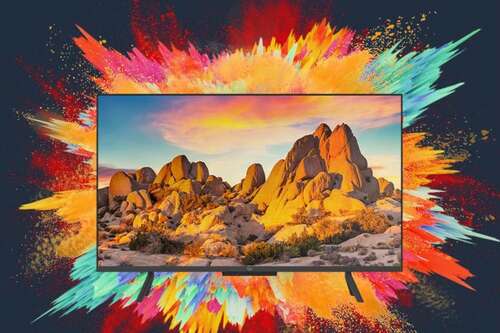
Google Chromecast and Apple AirPlay are popular methods of streaming video and audio to speakers and TVs, but some devices only support one or the other, or neither. Matter Casting is one attempt at fixing that, and it’s coming to Amazon Fire TVs and smart displays.
Amazon announced Matter Casting at CES 2024, which is a new wireless standard for streaming media from one device to another. It also supports controlling the volume, channel, and HDMI port as needed, potentially making it more useful than Chromecast or AirPlay. The technology is a new component of the Matter smart home standard, which aims to make connectivity between smart home devices like TVs, speakers, lights, and locks easier to manage.
Amazon said in a press release, “At CES, Amazon announced Matter Casting, which enables customers to cast content to Fire TV and Echo Show 15 devices directly from supported streaming apps on iOS and Android. Customers can begin watching a movie or browse for their next favorite show from Prime Video on their phone, and cast it to their compatible Fire TV device or Echo Show 15. This is an industry-first demonstration of implementing Matter Casting.”
Unfortunately, even though Matter Casting is built as an open standard that anyone can implement, it probably won’t be used by everyone. As with Chromecast and AirPlay, it needs to be supported by both the TV (or streaming device) and the origin app. There’s no sign so far that Google is willing to implement it on Google TV, Android TV, and Chromecast devices, even though Google has worked with Amazon on other Matter smart home features. The apps for Plex, Pluto TV, Sling TV, Starz, and ZDF have confirmed they will support Matter Casting.
It’s definitely fustrating that we’re getting yet another standard for streaming video and audio to a TV or other device that won’t recieve universal support. Miracast is also still hanging around, even though Google removed it from Android years ago in favor of Chromecast, and it was never integrated into Apple products. Maybe eventually all these tech companies will figure something out.
Source: Amazon, TechCrunch

